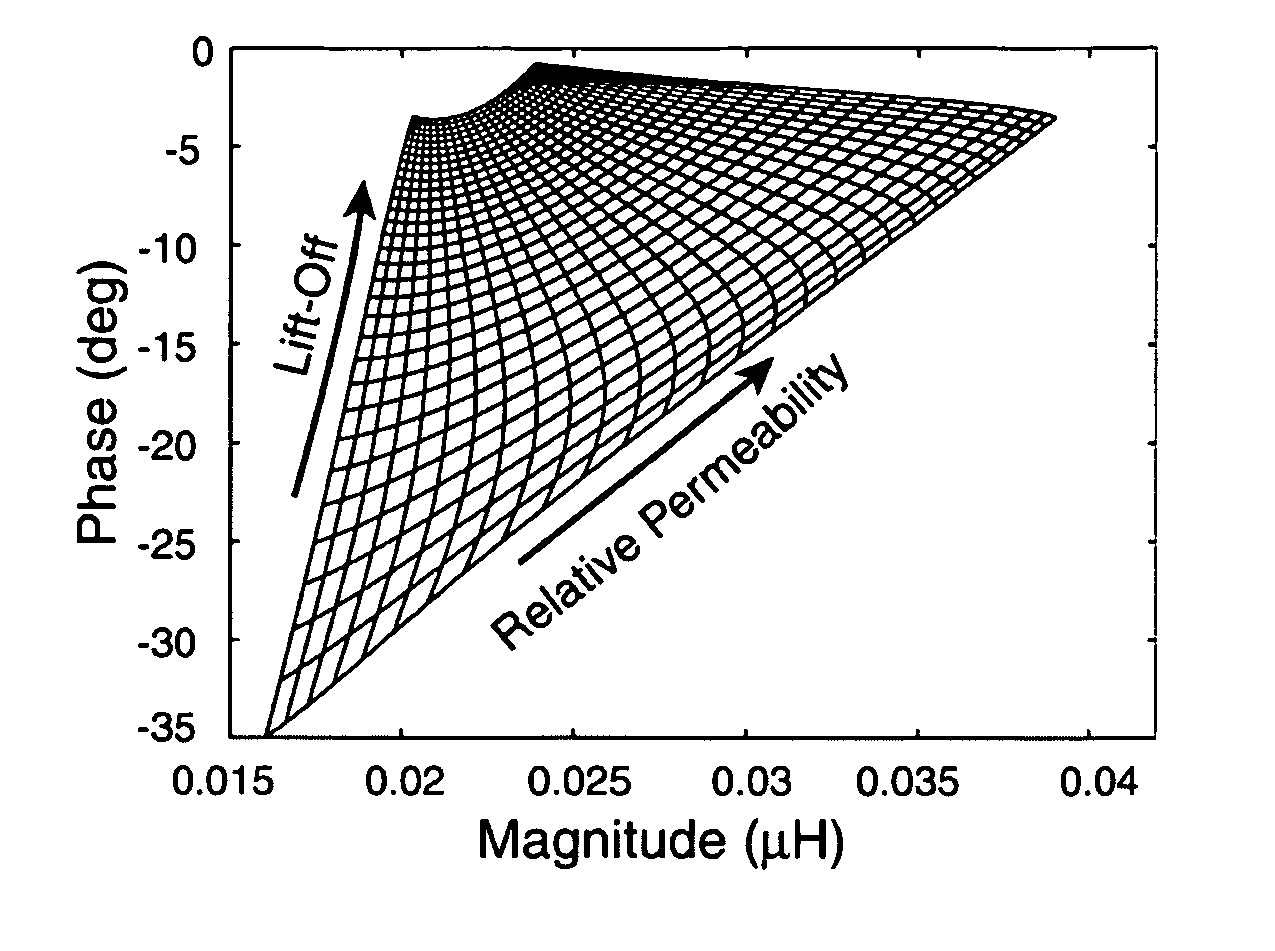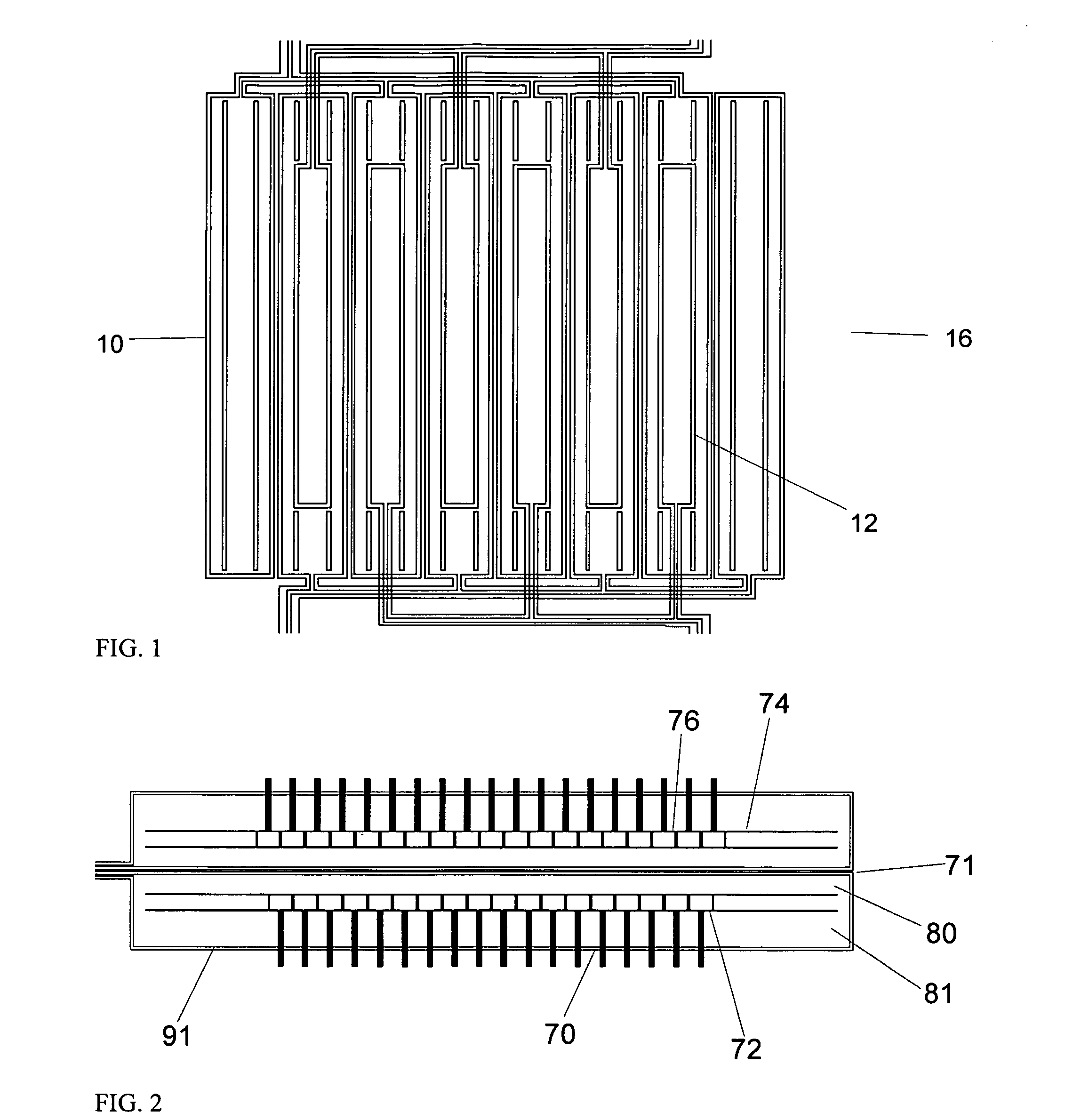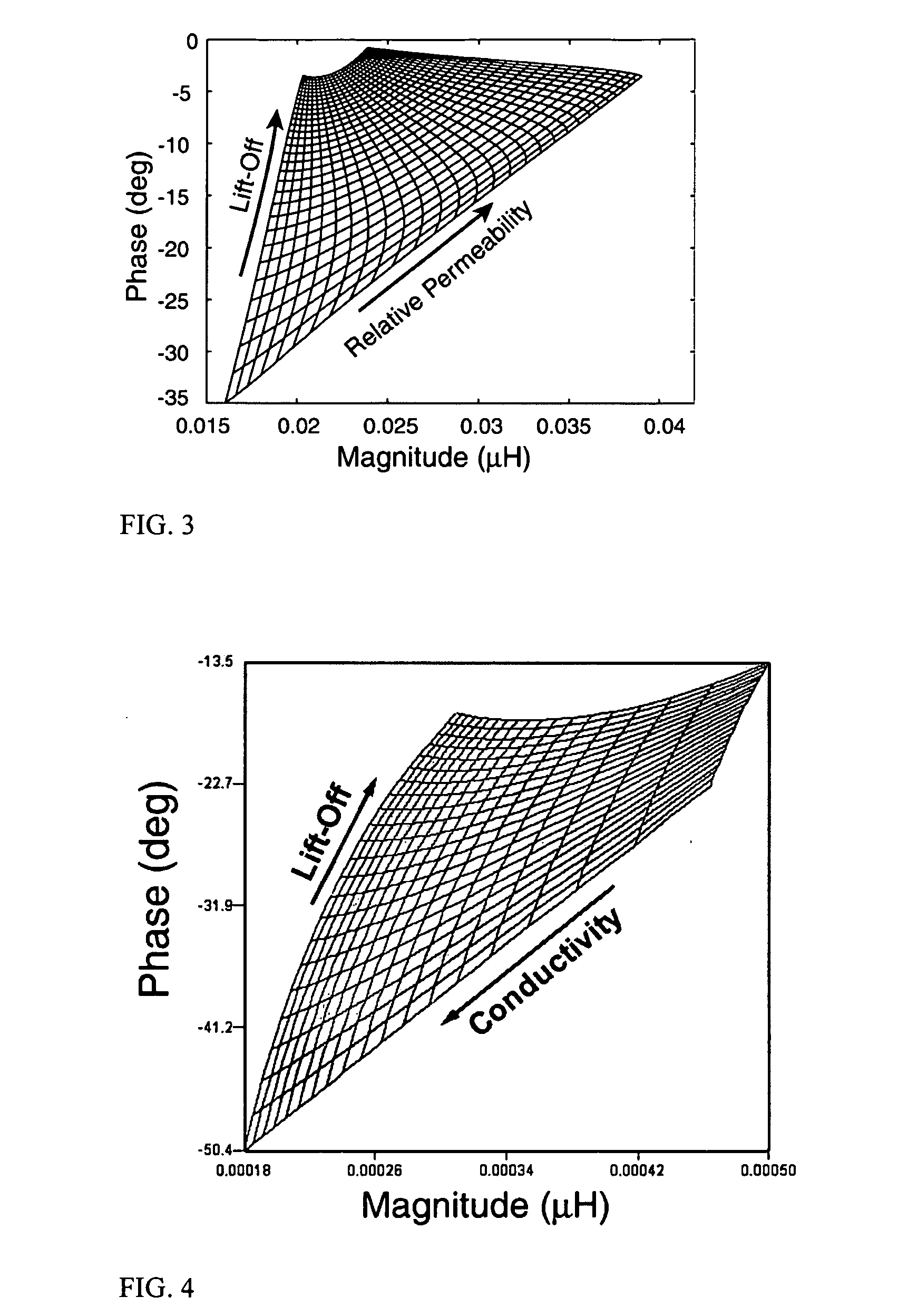Material condition monitoring with multiple sensing modes
a technology of material condition and monitoring mode, applied in the direction of mechanical measuring arrangement, instruments, using mechanical means, etc., can solve problems such as damage, use, or corrosion
- Summary
- Abstract
- Description
- Claims
- Application Information
AI Technical Summary
Benefits of technology
Problems solved by technology
Method used
Image
Examples
Embodiment Construction
[0033] A description of preferred embodiments of the invention follows.
[0034] Multiple component material systems and multifunctional materials may be characterized using hybrid and “tribrid” sensing methods. These methods use a combination of methods for assessing the material condition or state by relying upon a loading condition which preferentially affects one of the component materials in the system along with an interrogating sensor field that monitors the condition of the material system. Example multiple component materials include TBCs and embedded fiber-matrix composites. Loading the material, in a static, transient, quasistatic, and / or dynamic fashion, varies the unknown composite material condition (e.g. fiber density, fiber or matrix temperature, stress) in a manner that varies one, a subset, or all of the measurable unknown and / or known properties in a prescribed or at least controlled manner. A variety of interrogating sensor and loading fields can be used. These fie...
PUM
 Login to View More
Login to View More Abstract
Description
Claims
Application Information
 Login to View More
Login to View More - R&D
- Intellectual Property
- Life Sciences
- Materials
- Tech Scout
- Unparalleled Data Quality
- Higher Quality Content
- 60% Fewer Hallucinations
Browse by: Latest US Patents, China's latest patents, Technical Efficacy Thesaurus, Application Domain, Technology Topic, Popular Technical Reports.
© 2025 PatSnap. All rights reserved.Legal|Privacy policy|Modern Slavery Act Transparency Statement|Sitemap|About US| Contact US: help@patsnap.com



